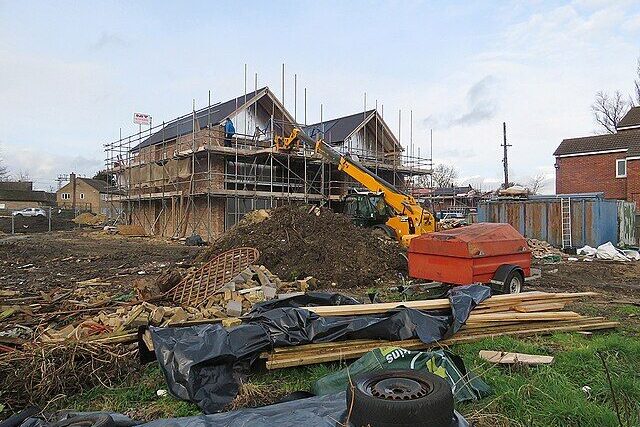
The government is exerting pressure on wildlife organisations to drop their opposition to its planning bill.
Some of Britain’s leading nature charities – including the RSPB, the Wildlife Trusts and the National Trust – warn that the legislation poses a serious threat to the natural environment. The charities are calling for Part 3 of the bill to be removed entirely, describing it as a “licence to kill nature”.
Senior representatives from the organisations were summoned to a meeting with government officials last Friday, during which nine amendments to the bill’s wording were presented. These changes, the government claims, would provide stronger environmental protections. In return for accepting the revisions, ministers are seeking an end to the charities’ public campaign.
Angela Rayner, Secretary of State for Housing, Communities and Local Government, has prepared a statement in support of the bill for the charities to endorse. It says: “These amendments will provide confidence that our reforms will truly deliver for nature and help us recover our most precious sites and species as we work to get Britain building.”
One attendee at the meeting commented that their organisation “will take some persuading”.
Another source from a charity said: “There is a lot of pressure. There is this deal trying to be struck by Angela Rayner’s department, essentially so that we go quiet, or even better that we back the bill. But at the moment what’s been offered in the meetings is not enough for us; we are not convinced.”
The environmental charities involved – the RSPB, National Trust, Wildlife Trusts and Wildlife and Countryside Link – collectively represent around eight million members.
Some members have expressed concern about the nature of the proposed compromise and the tactics being employed. One source said: “They cannot make deals in backrooms like this, [the NGOs] have to come to us with this. There is a great deal of unease around this. We are not going to stop campaigning against this bill.”
At present, none of the organisations has agreed either to sign the statement or to halt their campaigning efforts.
Richard Benwell, Chief Executive of Wildlife and Countryside Link, confirmed that discussions with the government are ongoing. He said: “As it stands, the bill skews the scales much too far away from the crucial safeguards nature needs. We hope ministers make the significant and wide-ranging amendments needed to reset the balance for nature and ensure that the planning system gives strong protection to vulnerable habitats and species and contributes to nature recovery.”
The bill has been described as a “regression” in environmental law by the chair of the government’s own watchdog, the Office for Environmental Protection, as well as by two independent legal opinions. It would enable developers to bypass existing environmental regulations and proceed with construction without assessing the impact on protected wildlife and habitats, provided they pay a levy into a central nature recovery fund.
Legal analysis has revealed that more than 5,000 of England’s most ecologically valuable protected sites are at high risk of destruction under the proposed changes.
The planning bill is a cornerstone of the government’s pledge to deliver 1.5 million new homes and 150 major infrastructure projects during this parliamentary term. However, rhetoric from Keir Starmer, Rachel Reeves and Angela Rayner has framed environmental protections as an obstacle to development. This claim is undermined by the government’s own impact assessment, which finds little evidence to support it.
More than 100,000 people have signed a petition opposing the bill, and thousands have contacted their MPs to express concern about its threat to nature.
On Thursday, peers in the House of Lords will begin a line-by-line examination of the legislation. Among the amendments under consideration is one from Lord Roborough, the Conservative shadow Defra minister in the Lords, which seeks to remove Part 3 altogether.
Alexa Culver, an environmental solicitor with RSK Wilding, said that the government’s proposed changes fail to address the bill’s most serious flaws.
“Back-room bargains are being made about our natural environment and our economy, which are leading to the ‘worst of all worlds’ amendments,” she said.
A government spokesperson said: “We’ve inherited a system that has blocked homes, infrastructure and economic growth while doing nothing for nature’s recovery, and we are determined to fix this. We have committed to only act in legislation where we can confirm to parliament that the steps we are taking will deliver positive environmental outcomes.
“We note the support of the Office for Environmental Protection for the intentions behind our reforms and continue to carefully consider their advice. Our planning and infrastructure bill will mean a win-win for both nature and the economy, and we are always listening to views about how we make sure our reforms are as effective as possible so we can leave a lasting legacy of environmental improvement.”
——————————————————————————
At Natural World Fund, we are passionate about restoring habitats in the UK to halt the decline in our wildlife.

